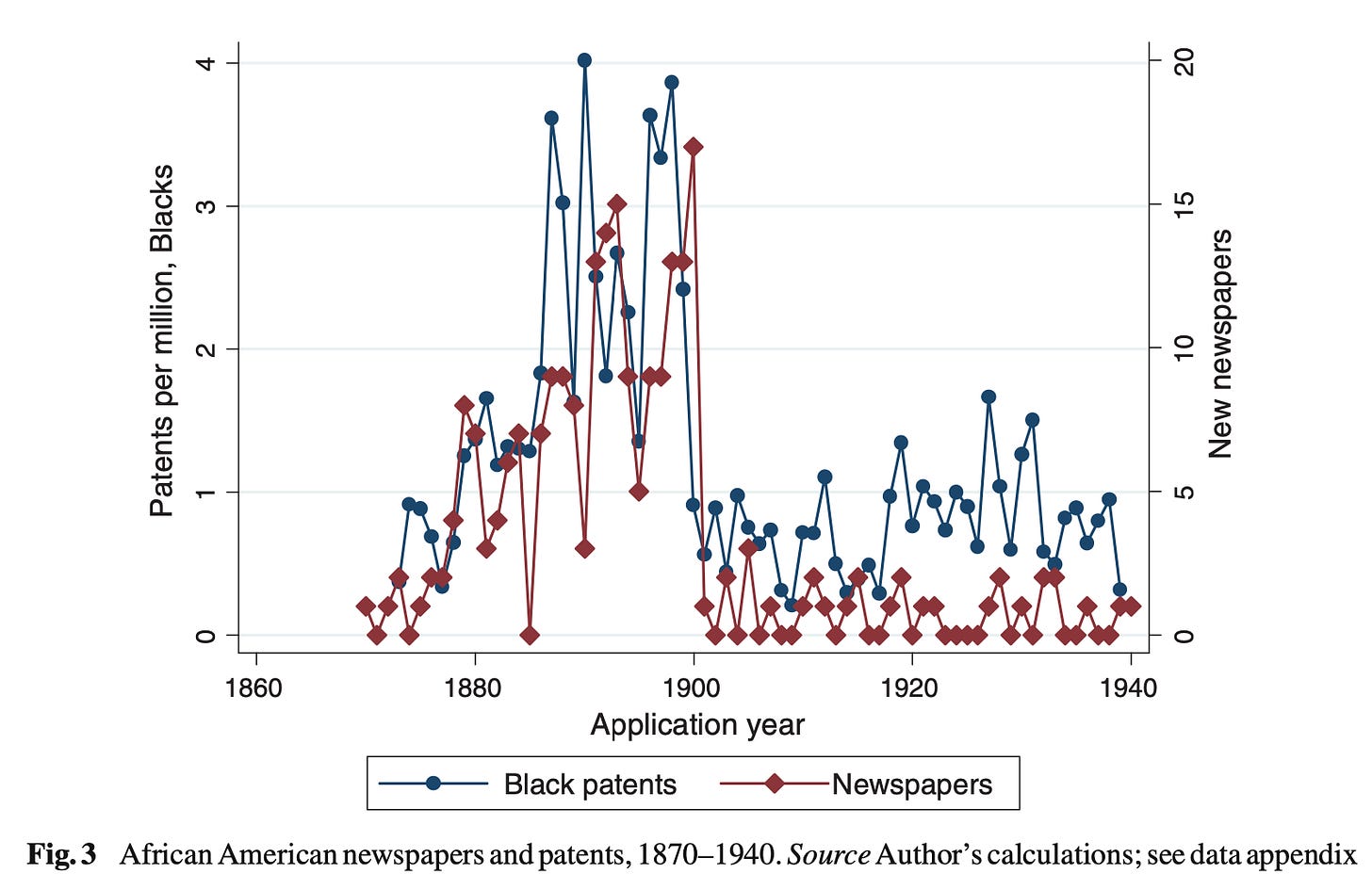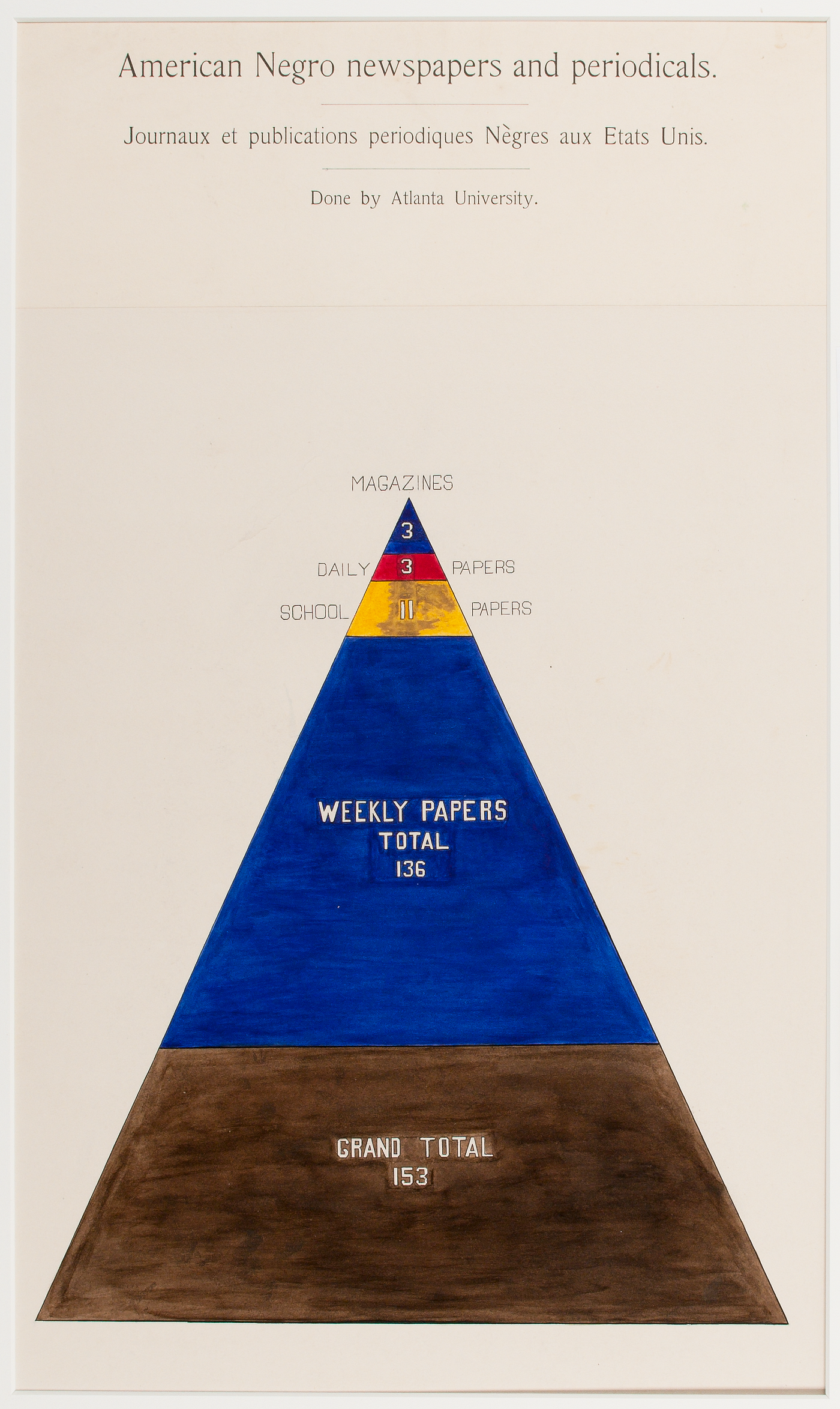
Brad DeLong: Yeah, OK, I Guess My Old Student, Fed Nominee Lisa Cook, Did Screw Up Her Patent Paper … But Not Fatally!
By Steve Sailer
02/21/2022
From economist Brad DeLong’s “Grasping Reality” substack punching up at critics of Fed nominee Lisa Cook’s paper on black patents:
I’ve engaged with Harald [Uhlig, former chair of the U. of Chicago Economics Dept.] before, and found it a waste of time. He’s not a data person… When Lisa came to Berkeley to present this, we gave her a hard time on the data point, and she convinced us that it was a real discontinuity in patenting, and not simply a failure to identify patents by Blacks. People who had been patenting in the 1890s, and ought to have been patenting in the 1900s, weren’t, IIRC…
I had failed to bring to mind that her responses to the data questions were not just that “there is a break not just in the aggregate series but in individual inventors’ patenting patterns around 1900”, but that also there was a broader sharp fall in entrepreneurial activity by African-Americans: newspapers, for example. After checking, other people at the seminar I saw say that they thought this figure did the most in putting to rest fears that all of the ca.-1900 decline was a data artifact. If it is all a data artifact, it is a very broad one:

In contrast, my first suspicion is the sharp decline in new black newspapers after 1900 in Lisa Cook’s database is due to the exact same cause as the sharp decline in patents: impressive federally funded efforts were made by top men in early 1900 to collect evidence of African-American progress for the Exhibit of American Negroes that occupied one-fourth of the U.S. Pavilion at the 1900 Paris World’s Fair.
And indeed, here’s a data graphic that W.E.B. Du Bois had drawn up by his research assistants in 1900.

Du Bois had his team draw up avant garde graphs to bring some visual flair to the display of sociological data in the world’s art capital.

This Triangle Graph hasn’t caught on (for good reasons), but the point is that we have much better contemporary coverage of African-American history for the years up into the early months of 1900 than for following years. Cook decided upon a very conservative standard for evaluating black patents, requiring the patent number for her to count it, which means she is no doubt missing a lot of obscure data points that she’d have counted if they’d happened in, say, 1899 rather than in 1901. Same for newspapers, probably.
DeLong goes on:
Her second, panel, set of regression results in Table 7 does, for the most part, use the ca.-1900 decline as part of its identifying variance. But column 6, which looks only at the 1918-1940 sample, does not. It looks as though the computer does take the time-series dimension of the absence of riots and the boom in inventive activity from 1880-1895 as its signal that white violence in the form of race-riots is substantially correlated with low patenting, but even in the post-WWI sample there is plenty of cross-sectional state identifying variation for the computer to judge that places where there are a lot of lynchings are places where it is very unhealthy to be a Black inventor as well:
Sure, but everybody always knew it was better for upwardly mobile blacks, like inventors, to be in the North than in the South in 1918-1940. Heck, it was better for white inventors to live in the North than in the South.
Cook’s claim to fame is that she discovered a sudden national drop in black inventiveness from 1899 to 1900, which nobody had ever heard of before.
I do not think Harald Uhlig has read Lisa Cook’s paper at all.
If you read the paper, you noticed that Table 6 and column 6 of Table 7 did not rest at all on the apparent sharp decline in African-American patenting in 1900. That possible data discontinuity is not a “fatal flaw”. Nobody who had read the paper would call it such.
It’s an issue with the series, and a factor to be worried about in evaluating columns (1)-(5) of Table 7. But, then, in good papers there are always data issues.
But “fatal flaw’“? Only somebody who has not read the paper, and does not care that they have not read the paper, would say so.
In other words, DeLong is more or less admitting that his former’s student’s famous finding of a sharp change from 1899 to 1900 likely never happened and it’s just an artifact of Cook getting confused. But, her completely boring finding that blacks in the South were less likely to earn patents than blacks in the North is valid, so therefore her purported qualifications to be Federal Reserve Governor should not be questioned.
